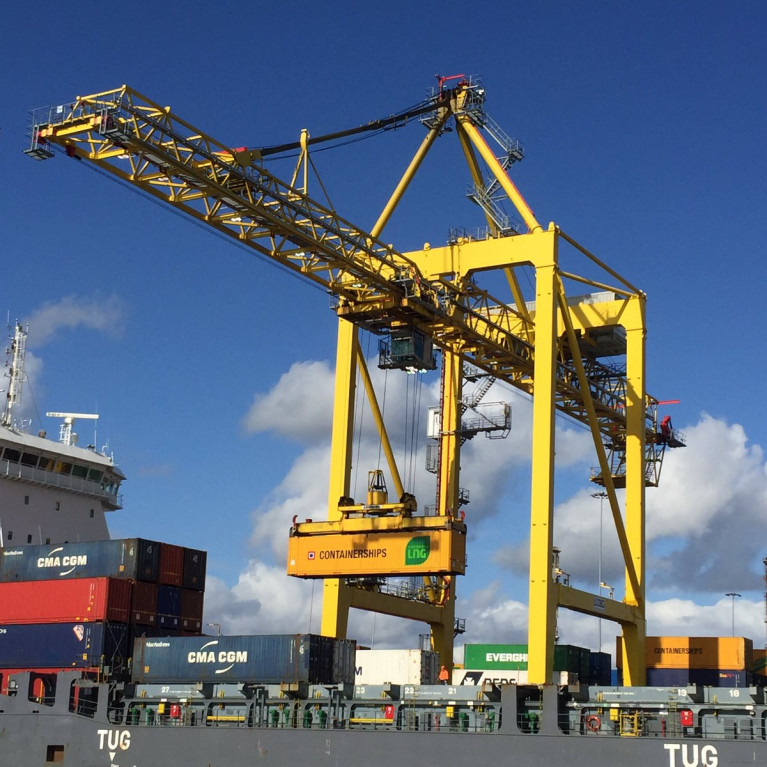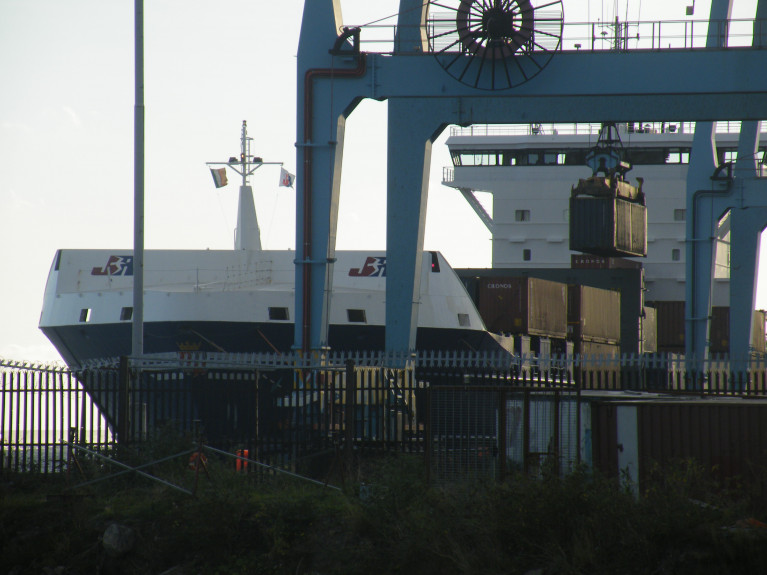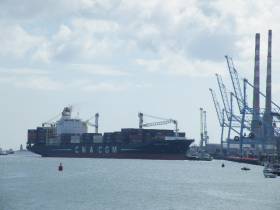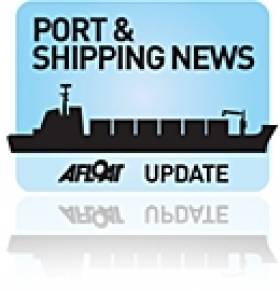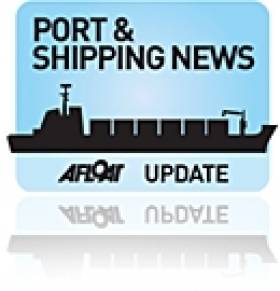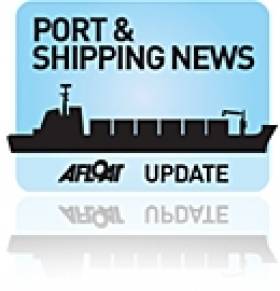Displaying items by tag: Irish Exports
More Than Half of Exporting Businesses Expect Exports to Rise
A survey has revealed that more than half of exporting businesses here have seen their exports increase this year compared to last year, despite the impact of Brexit and the Covid-19 pandemic.
According to the new survey carried out by Enterprise Ireland which also found 91% expect to see their sales rise again next year.
The key growth markets identified by client companies are North America, Europe and the UK.
80% of firms reported that digitalisation was a priority over the next year.
Just under two thirds said advancing their sustainability agenda and adapting to climate change was a priority.
The survey was carried out ahead of Enterprise Ireland’s International Markets, which will see over 700 companies meet virtually with 140 market advisors from 40 overseas offices, during over 1600 individual meetings over five days.
More from RTE News.
Irish Exporters Association Says Companies Impacted by Coronavirus
The Irish Exporters Association chief executive has warned that a number of Irish companies are going to be impacted by the coronavirus.
Simon McKeever told RTÉ radio’s News at One that markets are being affected by the virus as it is difficult to get items into and out of China. He also said that members are also beginning to see a slow down in payments from China as businesses have closed because of the virus.
The lack of components from China will have an impact at micro level for a number of Irish companies, he said as the production of source items has come to a halt.
His members are saying that the difficulties caused by the virus will have “an acute impact” in four to six weeks and even if the peak of the virus has passed, there could still be a six to eight week tail back as logistical systems get back on line.
Freight companies are also having to ship into other countries as Chinese ports are full, he said.
The Irish Examiner has more here relating to Irish people on board two cruise ships where the virus has been detected.
Irish Exports: Half Went to EU in July
#IrishPorts - The Irish Examiner writes that exports to EU countries rose 15% over the past year with more than half of Irish goods going to the Continent in July, official figures have shown, as calls grow for Irish ports to be funded post-Brexit.
CSO figures for July showed the continental EU accounted for €5.65bn, or 51%, of exports in July, of which €1.44bn went to Belgium and €725m went to Germany.
Exports to EU countries increased by €749m, or 15%, compared with July 2017, according to the CSO.
Imports from the EU were valued at €4.8bn, or 63%, of total imports in July 2018 — an increase of €1.43m, or 43%, over the same comparative period.
For further facts and figures click the story here.
Firms Advised by Enterprise Ireland to Prepare for Hard Brexit
#ExportsToUK - In order to prepare for a hard Brexit, Enterprise Ireland is advising firms here amid growing signs the British government may opt to quit the single market in order to regain full control over immigration.
The Irish Times writes the agency’s chief executive, Julie Sinnamon, said it would be “foolish” to do otherwise given the current signals from Downing Street.
She was speaking in the wake of UK prime minister Theresa May’s suggestion that Britain would not attempt to cling on to “bits of EU membership” in its negotiations with Brussels.
“Irrespective of Theresa May’s comments, we have to prepare for the worst. And if it becomes a softer Brexit, then we’re in a stronger position,” Ms Sinnamon said at the publication of Enterprise Ireland’s latest annual report.
A key plank of the agency’s Brexit strategy was getting companies to look at new market opportunities while consolidating their position in the UK market, she said.
The UK’s share of Irish exports has fallen from 45 per cent to 37 per cent in the past decade, and this trend will likely be accelerated by Brexit, Ms Sinnamon said.
She also confirmed that a number of high-profile businesses in the agri-food sector here were now being courted by UK agencies about the possibility of setting up operations there in the wake of Brexit.
The Republic’s €10 billion food sector is the most vulnerable to Brexit with more than half of the State’s food output going to the UK.
“At this stage, companies are not saying we’re closing up shop and going [to the UK], but I’ve no doubt that the UK will get their act together and really begin to proactively try and attract more companies there,” she said, noting that a disparity in state aid constraints in the wake of Brexit would make things more competitive.
For more on jobs created by Enterprise Ireland and its annual report click here.
IMDO Weekly Review: Exports Decline by 4%, Egypt Crisis Bunker Prices and Piracy in Guinea Surpasses Aden
#Ports&Shipping –The latest IMDO Weekly Shipping Market Review includes the following stories as detailed below.
Irish Ecomomy: Exports Decline -There was a 4% drop in exports last month according to preliminary figures from the Central Statistics Office. Seasonally adjusted exports were just above €7.05 billion in May, according to the figures, €314 million lower than the previous month.
Bunker Market: High price risk - Civil unrest in Egypt will push up the price of bunker fuel, easily the biggest expense for ship-owners, Lloyd's List warned last week. A senior executive from a ship-owning company who asked to remain anonymous told the shipping journal that bunkers could rise on the back of the climbing oil price.
Piracy: Developments-In 2012, pirate attacks in the Gulf of Guinea surpassed those in the Gulf of Aden and the Western Indian Ocean for the first time in recent times, according to a joint study released by the International Maritime Bureau, Oceans Beyond Piracy and Maritime Piracy-Humanitarian Response.
For more of the above and other stories visit the IMDO Weekly Markets Review (Week 28) and also on Afloat.ie's dedicated Ports & Shipping News section.
Weak International Demand sees Fall of 10% on Irish Exports
#IrishExPORTS – A weak international demand has seen a fall of 10% on the value of Irish exports during the month of February.
New figures from the Central Statistics Office (CSO) indicate exports decreased by €753 million to €6.65 billion in February compared with the same period last year.
The decline was driven by a 15 per cent (€309 million) fall in exports of medical and pharmaceutical products and an 18 per cent (€286 million) drop in organic chemical exports.
To read more on this story The Irish Times has a report.
Shipping Scene Highlights Busy Port of Drogheda
#BusyPort – Within the last 48 hours, Drogheda Port will have had nine cargoships that have either docked or lay at anchor, writes Jehan Ashmore.
The busy shipping scene is just a snapshot taken so far in early 2013 and follows the ports handling of more than 1m tonnes of cargo last year.
Export volumes and product types continue to increase as Irish companies seek to export and rely less on the home market. A number of specialist machine and metal fabrication products have recently been shipped from the port.
These nine cargoships have sailed across the Bay of Biscay and as far as the Baltic Sea and carrying a diverse range of imports and exports as outlined below.
Merle which arrived from Passajes, northern Spain with steel, Sergey Kuznetsov, a Russian flagged vessel berthed with bulk-cargo and Amazon Diep laden with timber.
A further three vessels, each loaded with bulk-cargos are the Sagabank, having sailed from Hamburg, Wilson Reef, owned by Norwegian owners and sailed from Rotterdam, while Nephrite had come from further afield having departed Klipeda in Lithuania.
The remaining trio of vessels all with export cargoes are Richelieu, which sailed from Liverpool to load machinery, Arklow Ruler, having transitted the Manchester ship canal, to load bulk cargo and Hohe Bank from Ayr to load fabricated units.
As demonstrated the shipping industry sector involves many ports, varying routes distances and variety of cargoes, not to mention the national backround of the ships themselves.



























